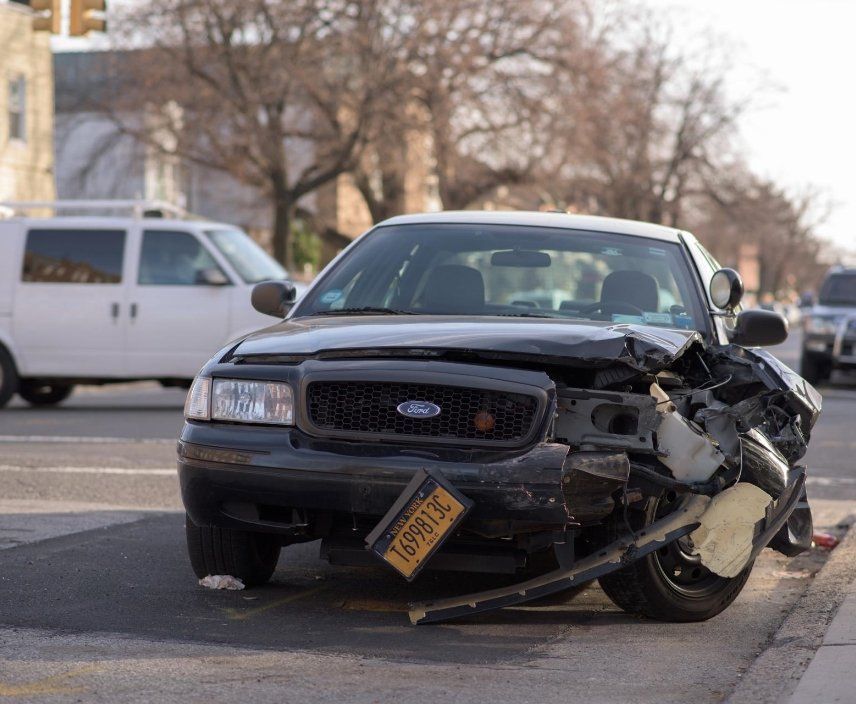DIGITAL PRIVACY | Carpenter v. United States [Updated 2019]
What is Dignital Privacy?
Can the government track your movements, without a warrant, through cell phone data? For almost four months? That was the main question the Supreme Court attempted to answer in Carpenter v. United States, 585 U.S. ___ (2018).

A Time-Stamped Record
Many of the ever-growing functions of your cell phone rely on the ability of the device to continuously connect (“ping”) to cell towers. Every time a phone connects to a cell tower it generates a time-stamped record. This data is known as cell-site location information (CSLI) .
The data is retained by your cell service provider, and if enough is gathered, this information is capable of creating a comprehensive picture of your daily life.

Generally, when the government seizes something they need a warrant supported by probable cause. However, under the Stored Communications Act , Congress lowered the amount of proof (that a crime was committed) needed to seize this data.
The CSLI data linked Carpenter to the robberies and he was later convicted. Prior to trial, Carpenter moved to suppress the cell site information seized, but his motion was denied.

The Sixth Circuit Holds...
The Sixth Circuit held that Carpenter had no reasonable expectation of privacy in the location of his physical movements because he voluntarily shared the information with his wireless provider (applying something called the third-party doctrine). They affirmed his conviction.
The United States Supreme Court (SCOTUS)
The United States Supreme Court decided to hear the case. Justice Roberts, writing for the majority, held the Government’s seizure of Carpenter’s cell-site records was a Fourth Amendment search.
He stated that the “digital data at issue—personal location information maintained by a third party—does not fit neatly under existing precedents…” The tracking of a person’s prior movements through CSLI is “detailed, encyclopedic, and effortlessly compiled.” Prior cell-site records may “ present even greater privacy concerns than the GPS monitoring” previously considered by the court.”

Data Was Not Voluntarily Given
The Court found Carpenter hadn’t voluntarily turned over the data at issue as the Sixth Circuit held. Instead, the Court found historical location information “is not truly ‘shared’” as cell phones are “‘such a pervasive and insistent part of daily life’ that carrying one is indispensable to participation in modern society.” Moreover, a cell phone logs a cell-site record “without any affirmative act on the user’s part beyond powering up.”
The Court ultimately held a warrant was required to seize this data and reversed. This ruling is helping answer the queation: what is privacy in a digital world?

Lawrence Koplow is an Arizona Criminal Defense Attorney. His practice focuses on DUI and Vehicular Crimes. Mr. Koplow can be contacted regarding legal issues and representation here: CONTACT.
More on the Fourth Amendment:

Traffic Stops
Traffic stops by police are one of the most frequent and reoccuring actions that invoke Fourth Amendment and privacy issues.

Pretrial Motions
Fourth Amendment and Privacy issues are challenged through pretrial motions. These motions request a court to find not only a constitutional violation occurred, by also request the remedy of suppression.

DUI Arrests
An arrest for an alleged DUI requires more proof than for a traffic stop. However, they also usually raise issues related to the validity of forensic evidence.








Summary appeared first on Lawrence Koplow: Arizona DUI Attorney | Phoenix & Scottsdale.

DUI Library
The best DUI defense stuff that only a few know and none want to share. A one of a kind annotated resource for lawyers, people accused, or anyone who wants to see what’s going on in our justice system with DUI cases…and how to fix it.

Contact Information
Office Hours
- Mon - Fri
- -
- Sat - Sun
- Closed
What Happens After You Reach Out
A team member will begin reviewing your case.
We will contact you to ask questions and go over your options.
We will determine, together with you, what makes sense for the next step for you and your family to take.
Ready to Fix This?
Contact Us
We will get back to you as soon as possible.
Please try again later.
OUR SERVICES
QUICK LINKS
CONTACT US


